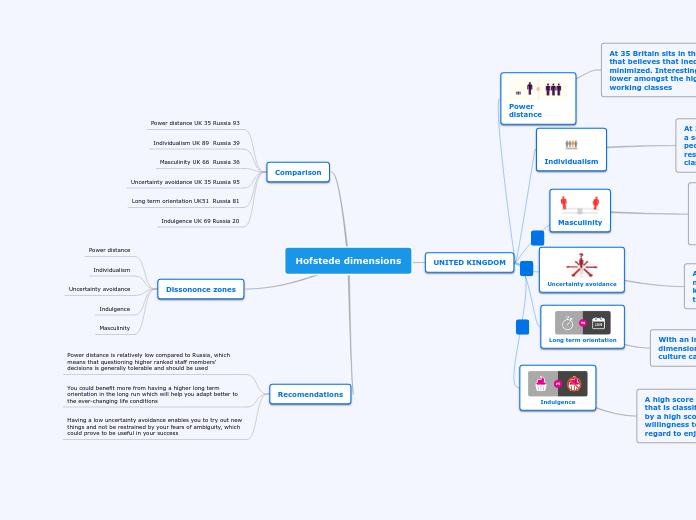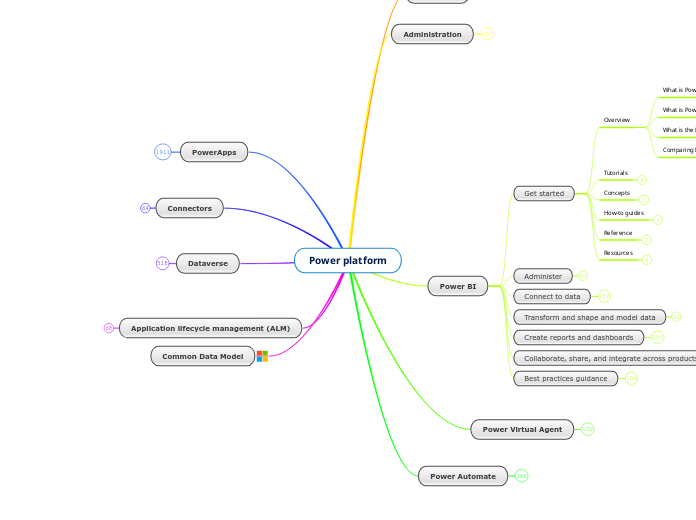realizată de Vikotriya Khaptakhanova 5 ani în urmă
842
Hofstede dimensions
The Hofstede dimensions provide a framework for comparing cultural values across different countries. This specific comparison focuses on the United Kingdom and Russia, highlighting various dimensions such as individualism, indulgence, uncertainty avoidance, masculinity, long-term orientation, and power distance.









